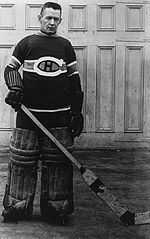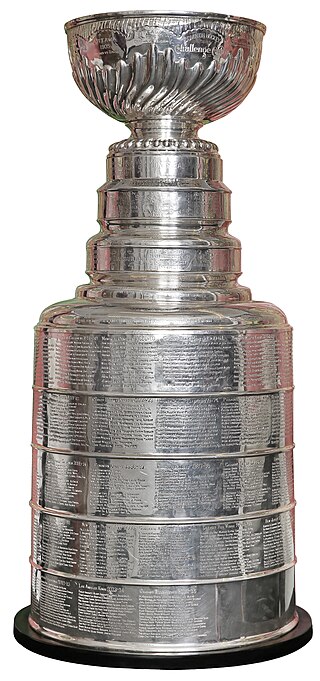
The Stanley Cup is the championship trophy awarded annually to the National Hockey League (NHL) playoff champion. It is the oldest existing trophy to be awarded to a professional sports franchise in North America, and the International Ice Hockey Federation (IIHF) considers it to be one of the "most important championships available to the sport". The trophy was commissioned in 1892 as the Dominion Hockey Challenge Cup and is named after Lord Stanley of Preston, the Governor General of Canada, who donated it as an award to Canada's top-ranking amateur ice hockey club. The entire Stanley family supported the sport, the sons and daughters all playing and promoting the game. The first Cup was awarded in 1893 to the Montreal Hockey Club, and winners from 1893 to 1914 were determined by challenge games and league play. Professional teams first became eligible to challenge for the Stanley Cup in 1906. In 1915, the National Hockey Association (NHA) and the Pacific Coast Hockey Association (PCHA), the two main professional ice hockey organizations, reached an agreement in which their respective champions would face each other annually for the Stanley Cup. It was established as the de facto championship trophy of the NHL in 1926 and then the de jure NHL championship prize in 1947.
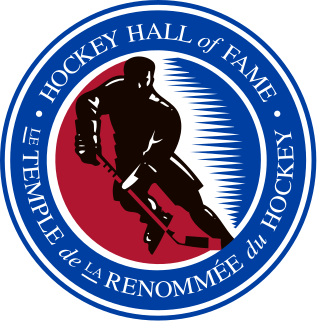
The Hockey Hall of Fame is a museum and hall of fame located in Toronto, Ontario, Canada. Dedicated to the history of ice hockey, it holds exhibits about players, teams, National Hockey League (NHL) records, memorabilia and NHL trophies, including the Stanley Cup. Founded in Kingston, Ontario, the Hockey Hall of Fame was established in 1943 under the leadership of James T. Sutherland. The first class of honoured members was inducted in 1945, before the Hall of Fame had a permanent location. It moved to Toronto in 1958 after the NHL withdrew its support for the International Hockey Hall of Fame in Kingston, Ontario, due to funding issues. Its first permanent building opened at Exhibition Place in 1961. The hall was relocated in 1993, and is now in Downtown Toronto, inside Brookfield Place, and a historic Bank of Montreal building. The Hockey Hall of Fame has hosted International Ice Hockey Federation (IIHF) exhibits and the IIHF Hall of Fame since 1998.

Kingston is a city in Ontario, Canada, on the northeastern end of Lake Ontario. It is at the beginning of the St. Lawrence River and at the mouth of the Cataraqui River, the south end of the Rideau Canal. Kingston is midway between Toronto, Ontario, and Montreal, Quebec, and is also near the Thousand Islands, a tourist region to the east, and the Prince Edward County tourist region to the west. Kingston is nicknamed the "Limestone City" because it has many heritage buildings constructed using local limestone.

Cassie DawinCampbell-Pascall is a former Canadian ice hockey player and a broadcaster for ESPN/ABC, and formerly Sportsnet. Born in Richmond Hill, Ontario, Campbell grew up in Brampton, Ontario, playing for the Brampton Canadettes. She was the captain of the Canadian women's ice hockey team during the 2002 Winter Olympics and led the team to a gold medal. The left winger took on the role of captain again in the 2006 Winter Olympics in Turin, Italy, and again successfully led her team to a gold medal with a 4 – 1 win over Sweden.

Fanny "Bobbie" Rosenfeld was a Canadian athlete, who won a gold medal for the 100-metre relay and a silver medal for the 100-metre at the 1928 Summer Olympics in Amsterdam. She was a star at basketball, hockey, softball, and tennis; and was called Bobbie for her "bobbed" haircut. In 1949, named Rosenfeld the "Canadian woman athlete of the half-century." The Bobbie Rosenfeld Award is named in her honour. In 1996, she was inducted into the Ontario Sports Hall of Fame.

Charles Joseph Sylvanus Apps, was a Canadian professional ice hockey player for the Toronto Maple Leafs from 1936 to 1948, an Olympic pole vaulter and a Conservative Member of Provincial Parliament in Ontario. In 2017 Apps was named one of the '100 Greatest NHL Players' in history.
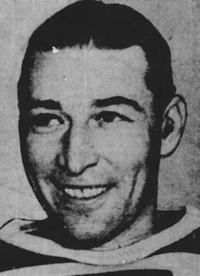
Aubrey Victor "Dit" Clapper was a Canadian professional ice hockey player. Clapper played his entire professional career for the Boston Bruins of the National Hockey League (NHL). He was inducted into the Hall of Fame in 1947, the first Honoured Member to be living at the time of his induction.

Howard William Meeker was a Canadian professional hockey player in the National Hockey League, youth coach and educator in ice hockey, and a Progressive Conservative Member of Parliament. He became best known to Canadians as an excitable and enthusiastic television colour commentator for Hockey Night in Canada, breaking down strategy in between periods of games with early use of the telestrator.

The Original Hockey Hall of Fame, formerly the International Hockey Hall of Fame (IHHOF) is a museum dedicated to the history of ice hockey in Canada, located in Kingston, Ontario, Canada. The IHHOF was intended to be the original Hall of Fame for hockey, but events led to the establishment of the Hockey Hall of Fame in Toronto, Ontario instead. A dedicated building was opened in 1965, and eventually also hosted exhibits for the International Ice Hockey Federation (IIHF) from 1992 to 1997, prior to the establishment of the IIHF Hall of Fame. The IHHOF was renamed the Original Hockey Hall of Fame in 2013, and now focuses on the history of the sport, and emphasis on the role people from Kingston had in its development.

The J. Ross Robertson Cup is a Canadian ice hockey trophy. It is awarded annually in junior ice hockey to the champion of the Ontario Hockey League playoffs. It was donated by John Ross Robertson to the Ontario Hockey Association in 1910, and is the third of three similarly named trophies he established. His other eponymous trophies for the OHA include, the J. Ross Robertson Cup awarded to the annual champions of Allan Cup Hockey, and the J. Ross Robertson Cup which was awarded to the annual champions of the discontinued intermediate division.

William Osser Xavier Cook was a Canadian professional ice hockey right winger who played for the Saskatoon Crescents of the Western Canada Hockey League (WCHL) and the New York Rangers of the National Hockey League (NHL). A prolific scorer, Cook led the WCHL in goals twice and the NHL three times. He was named an all-star seven times between the two leagues. Known as "The Original Ranger", Cook was the first captain of the New York Rangers, scored the first goal in franchise history and led the team to two Stanley Cup championships.
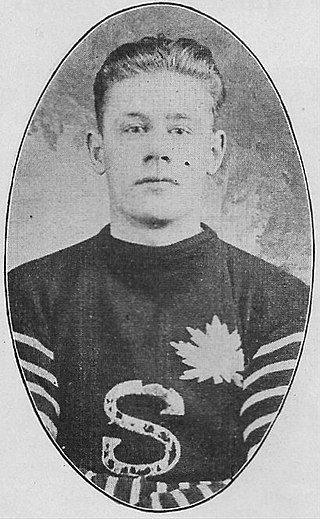
Frederick Joseph "Bun" Cook was a Canadian professional ice hockey forward and coach. He was an Allan Cup champion with the Sault Ste. Marie Greyhounds in 1924 before embarking on a 13-year professional career. He played for the Saskatoon Crescents in the Western Canada Hockey League (WCHL) and the New York Rangers and Boston Bruins in the National Hockey League (NHL). Cook was a member of two Stanley Cup championship teams with the Rangers, in 1928 and 1933, playing on the "Bread Line" with his brother Bill and Frank Boucher.
Herbert Henry Carnegie, CM, O.Ont, OMC was a Canadian ice hockey player of Jamaican descent. After his playing career was over, he became a successful businessman working in the investment industry. In 1954, he founded one of Canada's first hockey schools, Future Aces, and through his work in training young hockey players, became a member of both the Order of Ontario and the country's highest civilian award, the Order of Canada. His hockey career was recognized when he was inducted into Canada's Sports Hall of Fame in 2001, and the Ontario Sports Hall of Fame in 2014, and the Hockey Hall of Fame in 2022.

Jayna Hefford is a Canadian retired ice hockey player and current chairperson of the Professional Women's Hockey Players Association.
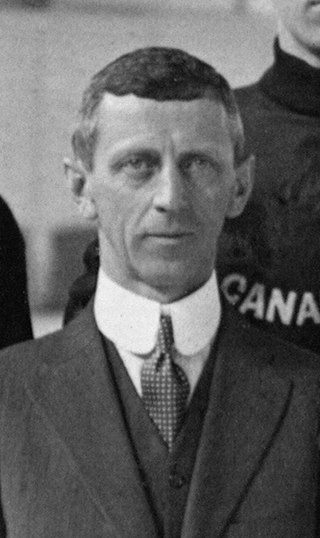
William Abraham Hewitt was a Canadian sports executive and journalist, also widely known as Billy Hewitt. He was secretary of the Ontario Hockey Association (OHA) from 1903 to 1966, and sports editor of the Toronto Daily Star from 1900 to 1931. He promoted the establishment of the Canadian Amateur Hockey Association (CAHA), then served as its secretary-treasurer from 1915 to 1919, registrar from 1921 to 1925, registrar-treasurer from 1925 to 1961, and a trustee of the Allan Cup and Memorial Cup. Hewitt standardized player registrations in Canada, was a committee member to discuss professional-amateur agreements with the National Hockey League, and negotiated working agreements with amateur hockey governing bodies in the United States. He oversaw referees within the OHA, and negotiated common rules of play for amateur and professional leagues as chairman of the CAHA rules committee. After retiring from journalism, he was the managing-director of Maple Leaf Gardens from 1931 to 1948, and chairman of the committee to select the inaugural members of the Hockey Hall of Fame in 1945.
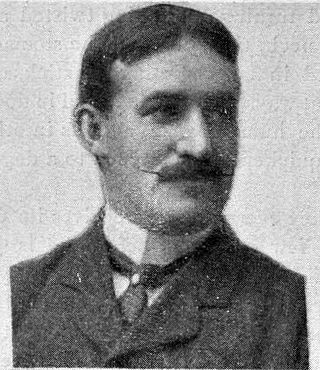
James Thomas Sutherland was a Canadian ice hockey administrator, and founding father of the game in Canada. Sutherland was a pioneer of hockey's early years, helping to develop amateur hockey, and spread the game's popularity throughout the country, and into the United States. He played in the inaugural season of the Ontario Hockey Association, and later coached and refereed the game. He founded the original Kingston Frontenacs, and later became president of the Ontario Hockey Association, and then the Canadian Amateur Hockey Association. He was instrumental in founding the Memorial Cup in 1919, and was at the forefront of the discussion on the origins of hockey.

The IIHF Hall of Fame is a hall of fame operated by the International Ice Hockey Federation (IIHF). It was founded in 1997, and has resided at the Hockey Hall of Fame in Toronto since 1998. Prior to 1997, the IIHF housed exhibits at the International Hockey Hall of Fame in Kingston, Ontario. Inductions are made annually at the medal presentation day of the Ice Hockey World Championships. As of 2023, the IIHF has inducted 245 members.

Allan Wilfrid Pickard was a Canadian ice hockey administrator, who served as president of the Canadian Amateur Hockey Association (CAHA) from 1947 to 1950. When Canada opted out of the 1947 Ice Hockey World Championships and decided not to participate in the 1948 Winter Olympics, Pickard felt that Canada was obliged to send a team due to its place as a top hockey nation, and nominated the Ottawa RCAF Flyers who won the gold medal for Canada and lived up to the requirements of the Olympic Oath as amateurs. Despite disagreement with the International Olympic Committee, he sought for the International Ice Hockey Federation to adopt the CAHA definition of amateur in the face of increasing difficulty in selecting the Canada men's national ice hockey team.
Fran Rider CM OOnt is a Canadian ice hockey executive, and former player. She began playing ice hockey in 1967, with the Brampton Canadettes, the predecessor to the Brampton Thunder. Rider is one of the founders of the Ontario Women's Hockey Association and played a significant role in expanding women's national and international competitions. Rider was inducted into the IIHF Hall of Fame in 2015 in recognition of her substantial impact on the growth and development of the modern game of women's hockey.


